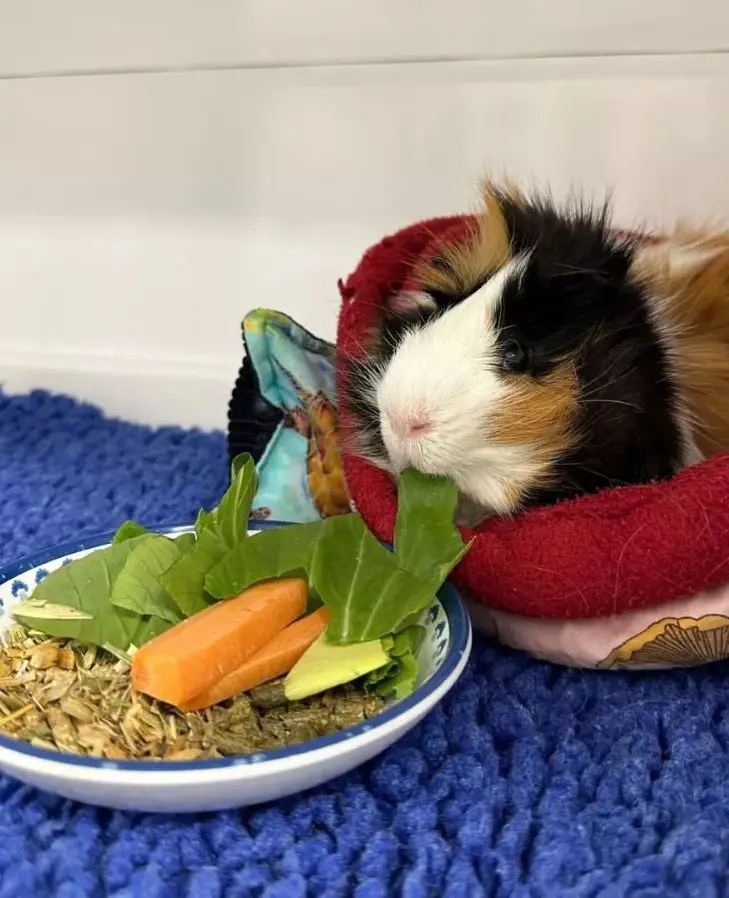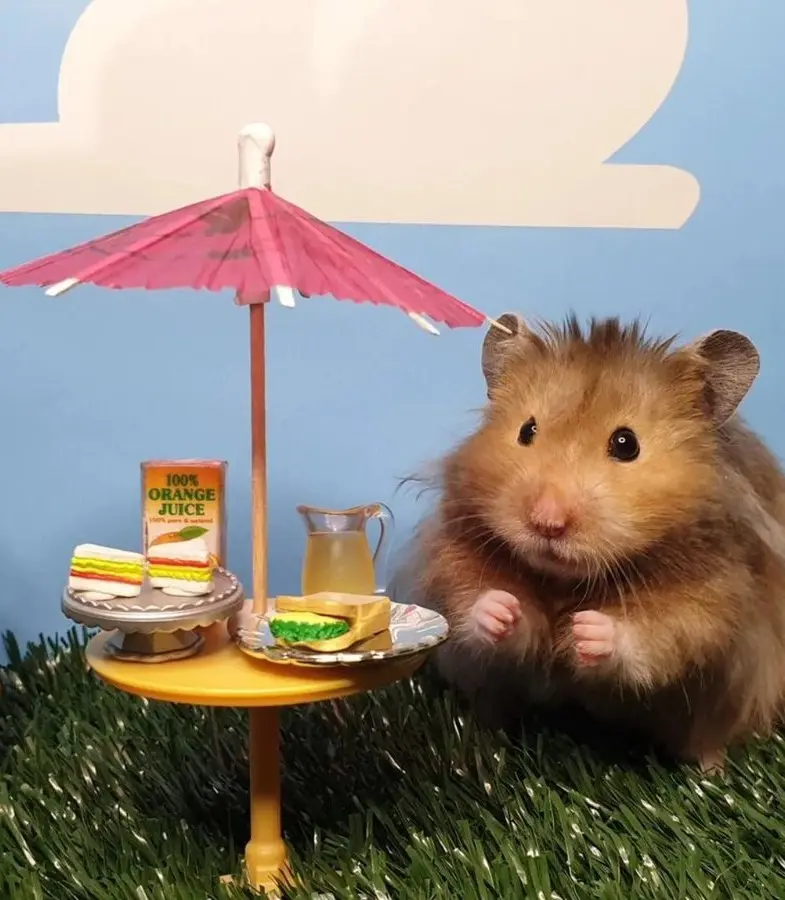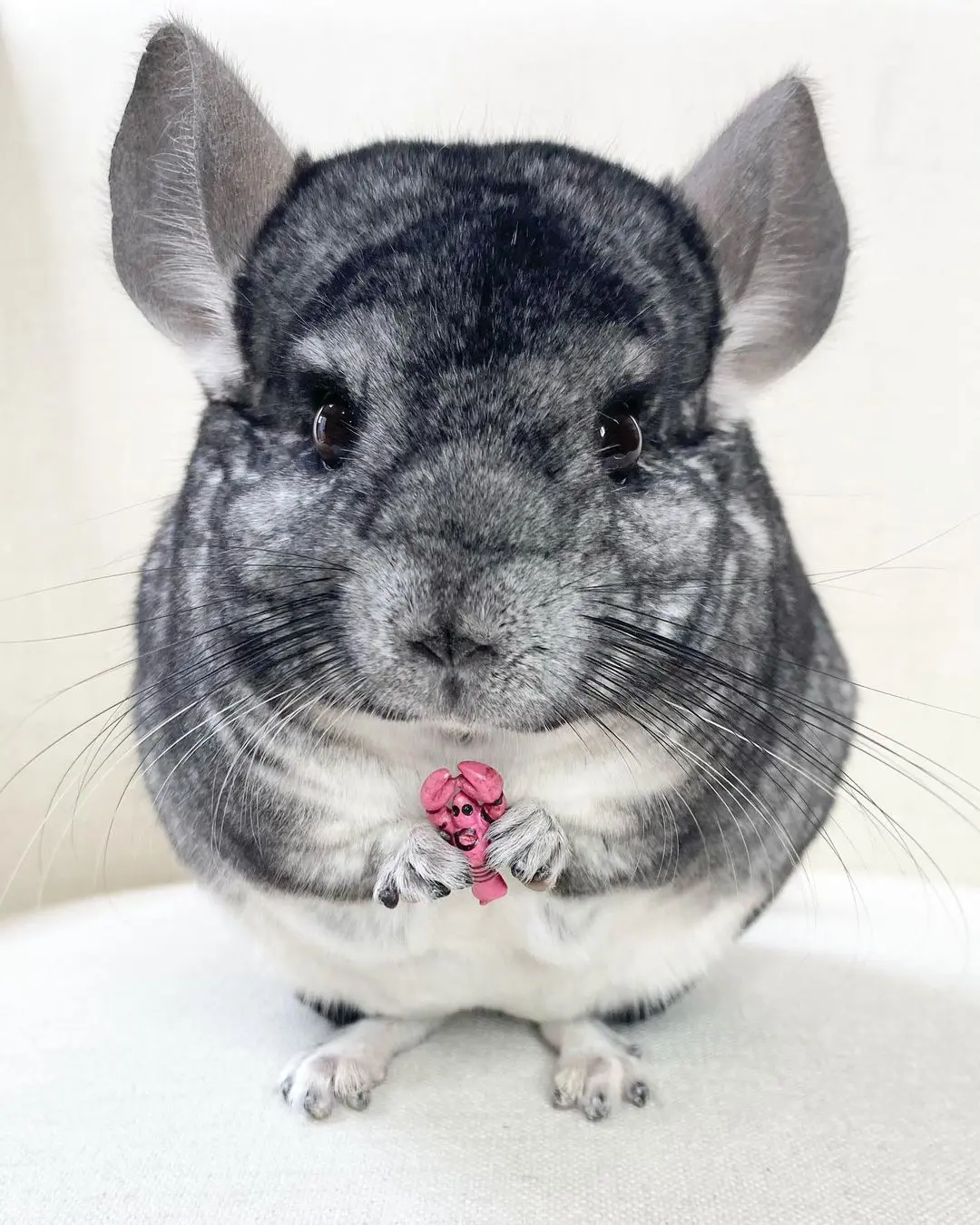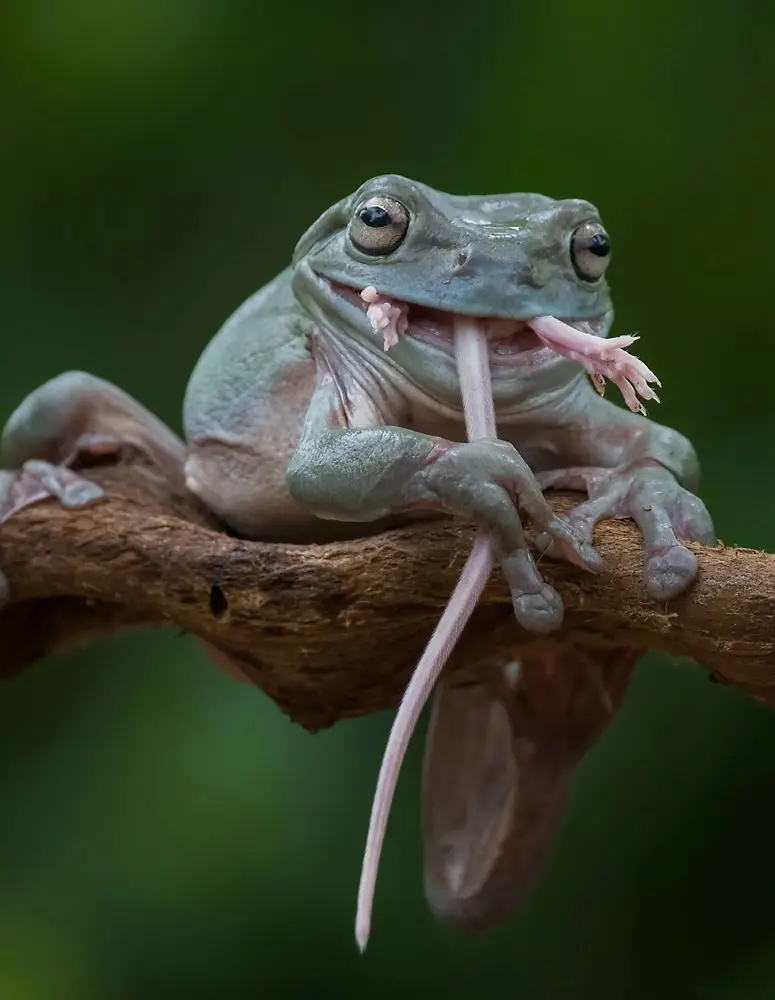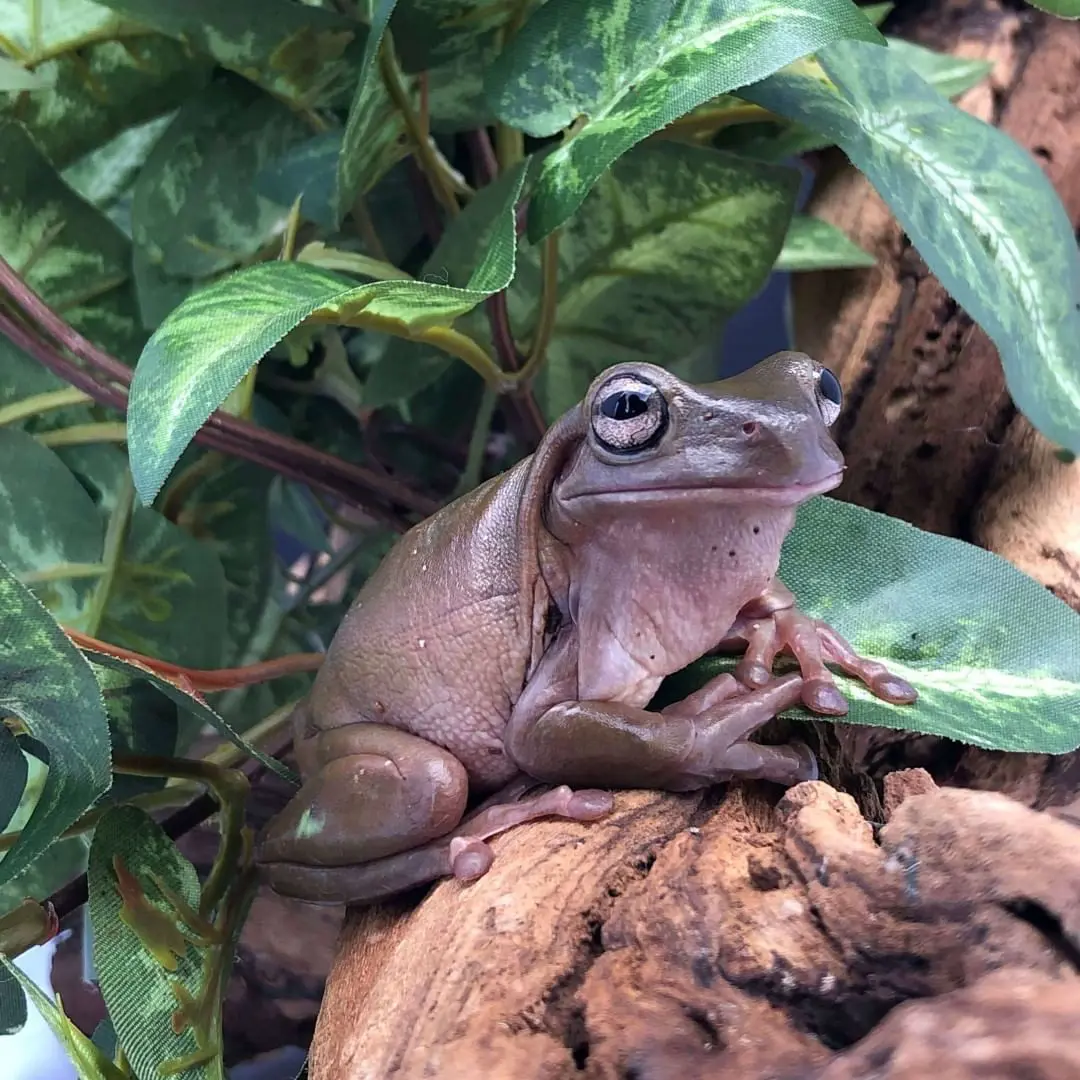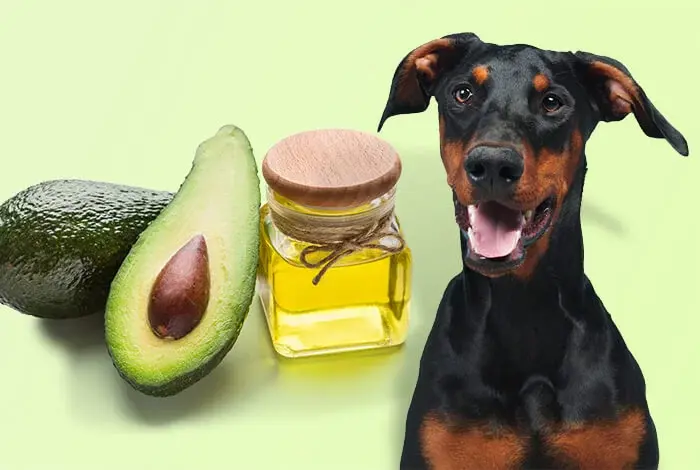What Rabbits Can Eat: A Guide To Healthy Foods
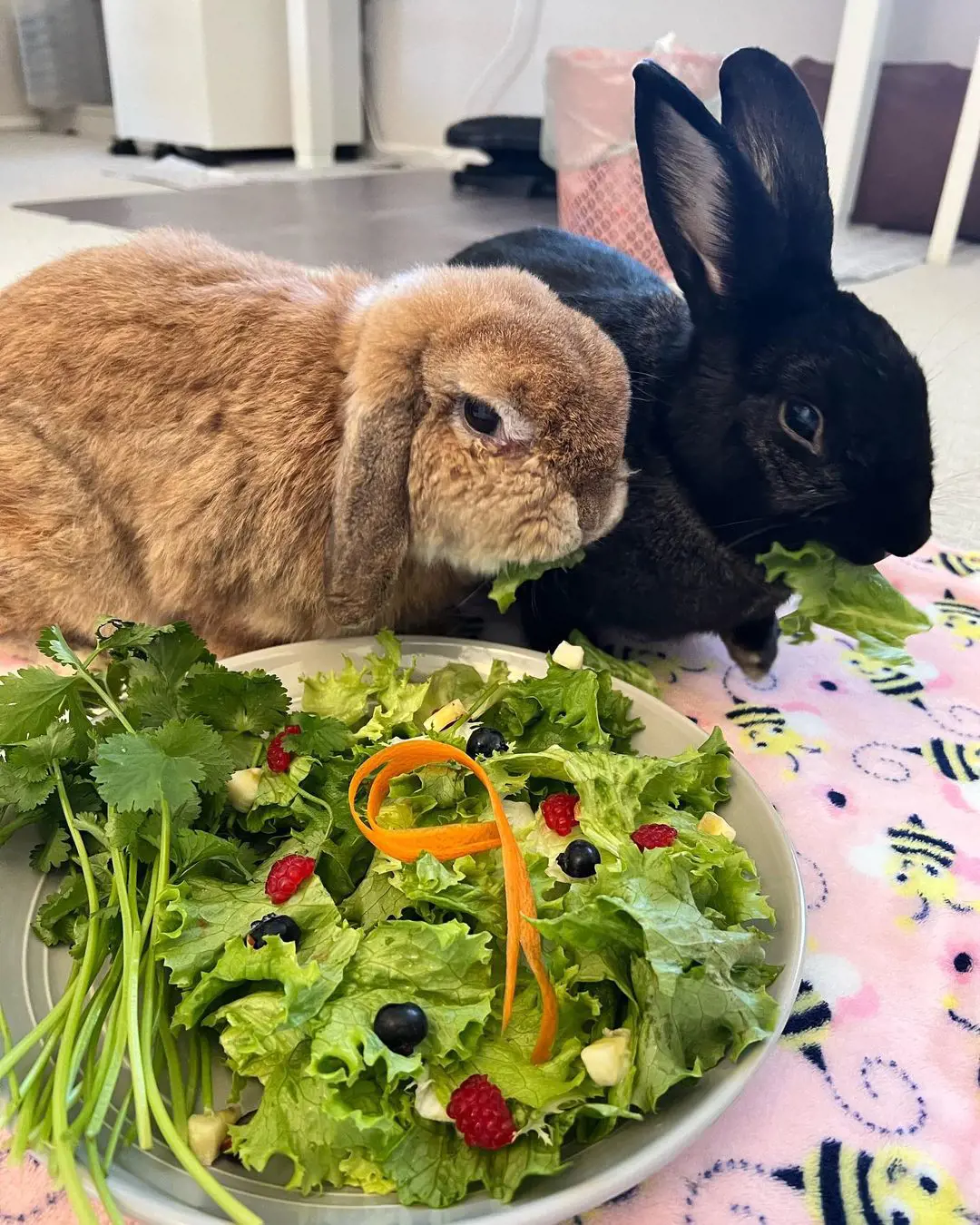
Feeding a rabbit can be an art, as they truly do have very specific tastes about what does or does not go onto their plate. Be it leafy greens or crunchy veggies, rabbits are in for a somewhat simplistic diet that keeps them hopping.
The list of rabbit foods is endless; from a sweet carrot to the tender romaine lettuce, bunnies enjoy a variety of dishes. These foods below are not just about quelling their hunger but also providing the right nutrients.
1. Fresh And Clean Water
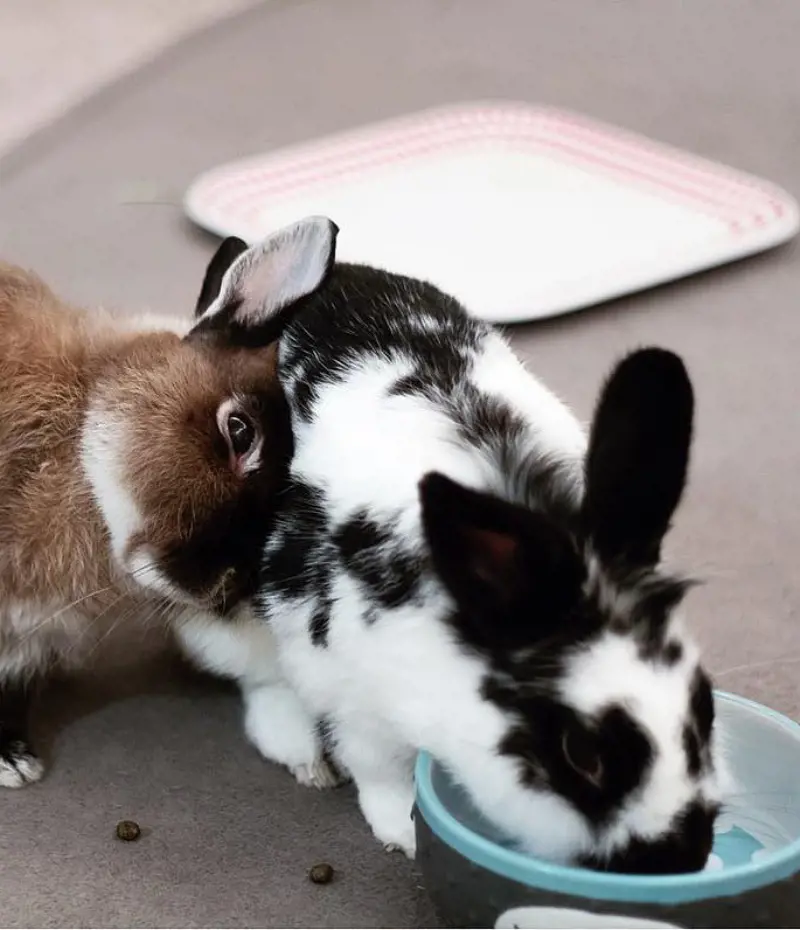
Water is the most essential ingredient in the daily diet plan of rabbits that no rabbit owner should ever overlook. Keep fresh water in a clean bowl and place them where the rabbits normally hang out.
Remember to change the water regularly as stale water is not good for the bunnies. They may also prefer slightly warm or cold water when the temperature is cold or hot, respectively.
2. Fresh Hay
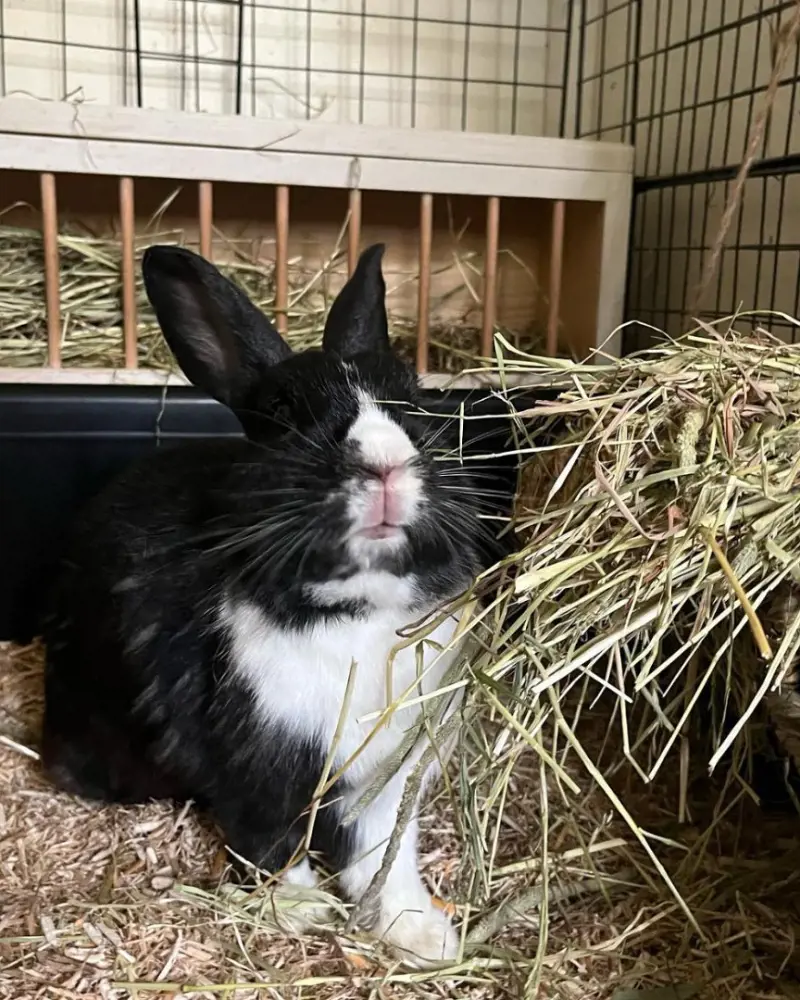
Hay, in general, should be part of a rabbit’s diet for all breeds because it fulfills the needed nutrients and keeps their gut healthy. Timothy hay, one of the most consumed hays, is perfect to feed adult rabbits as it a high amount of fiber and low level of calcium.
At the same time, the Orchard grass is softer and favored by picky eaters, while Alfalfa hay is good for young rabbits and lactating mothers.
3. Bunny Pellets
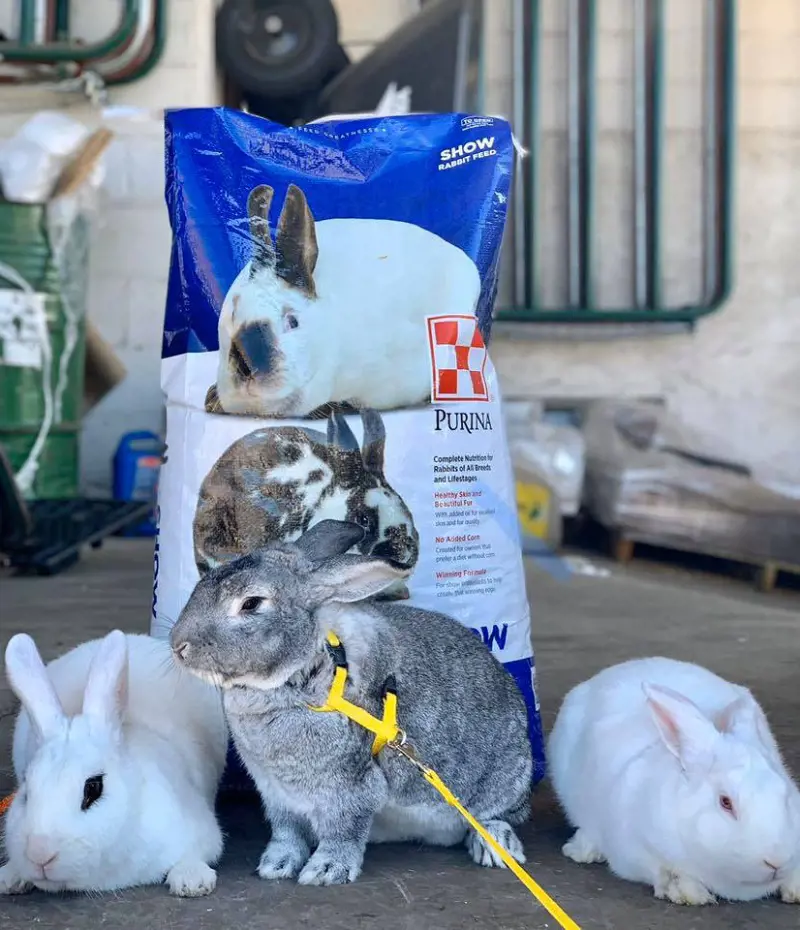
Pellets are representative of concentrated nutrition that can be purchased in multiple age types, from small bunnies to giant rabbits. Always seek out pellets that contain a balanced calcium-to-phosphorus ratio.
If the bunny pellets have too much calcium, rabbits will be inclined to urinary tract problems. Only feed around a quarter to half cup of pellets daily to these bunnies, not replacing their standard diet.
4. Fresh Vegetables
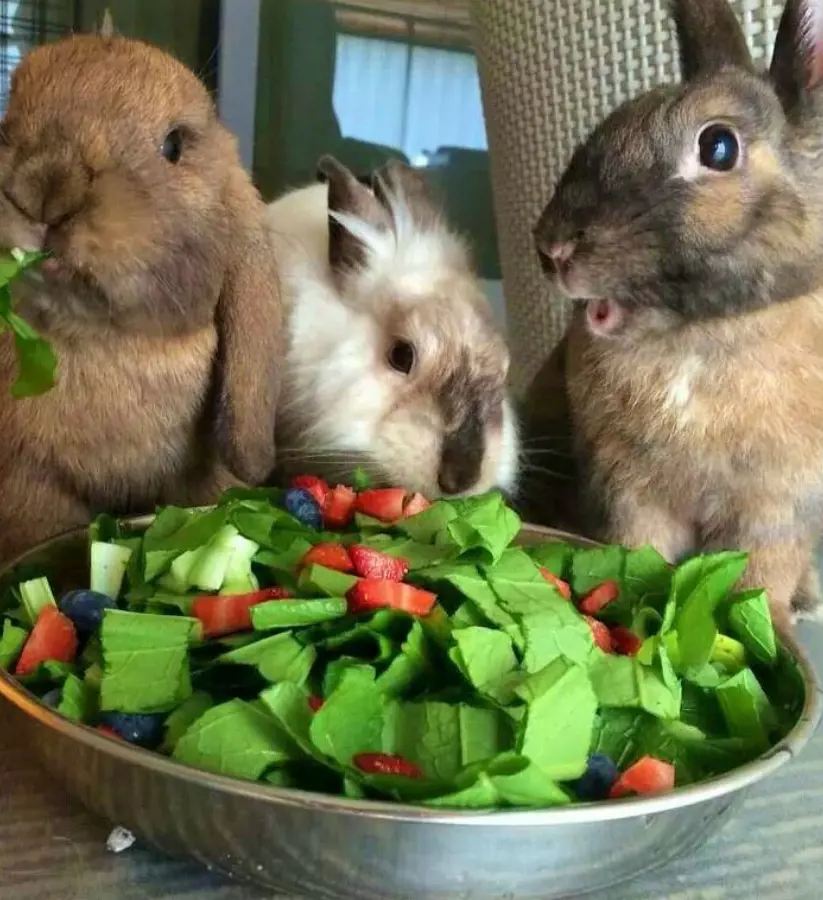
Fresh cucumbers, fennel, and wheatgrass are excellent additives to your pet's diet- these vegetables for rabbits contain much water and nutrients. The cucumbers are quite refreshing for the bunnies and hydrating during the warm months.
Crunchy in texture and also flavorful, fennel can actually help wear down your rabbit's ever-growing teeth. Similarly, wheatgrass is a high-fiber food to aid digestion and offer a healthy gut.
On the other hand, avoid feeding onions and garlic since they contain toxic compounds that can give rise to digestive problems and even anemia in rabbits.
5. Herbs
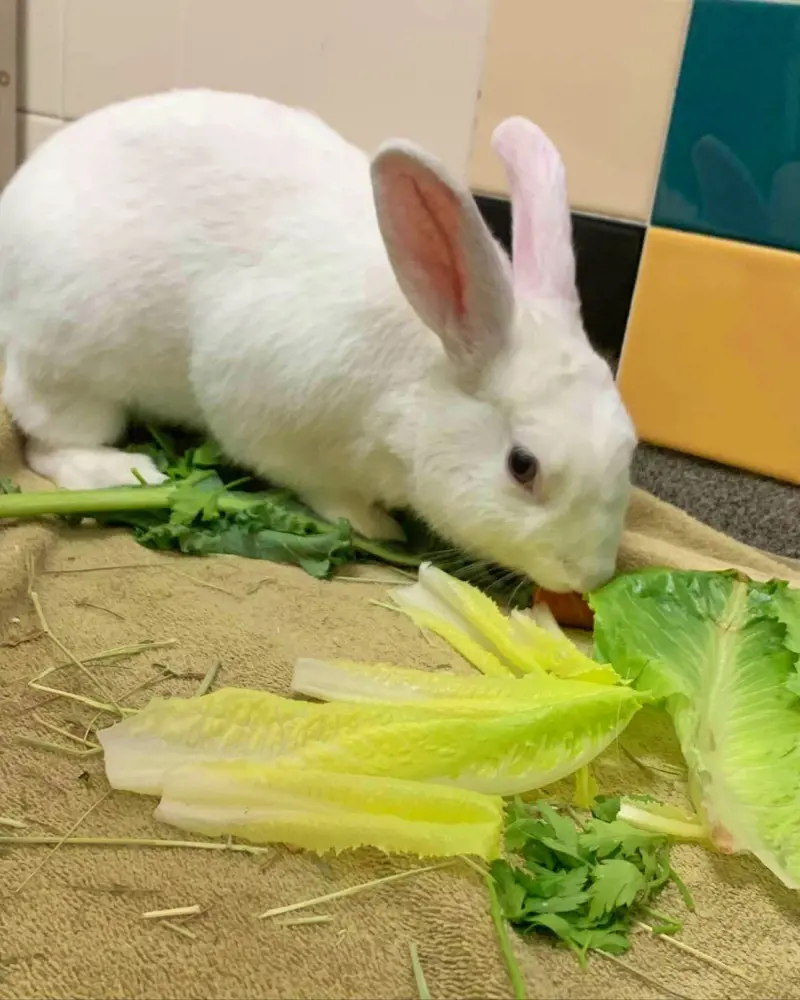
Whenever in doubt about what your pet eats, bring home fresh herbs like parsley, cilantro, basil, dill, and mint. In small amounts, these herbs can do wonders preventing any type of gastrointestinal problem.
Meanwhile, a few herbs, like chives and garlic chives, need to be completely avoided. These herbs possess special compounds that don’t go well with rabbits.
6. Carrots
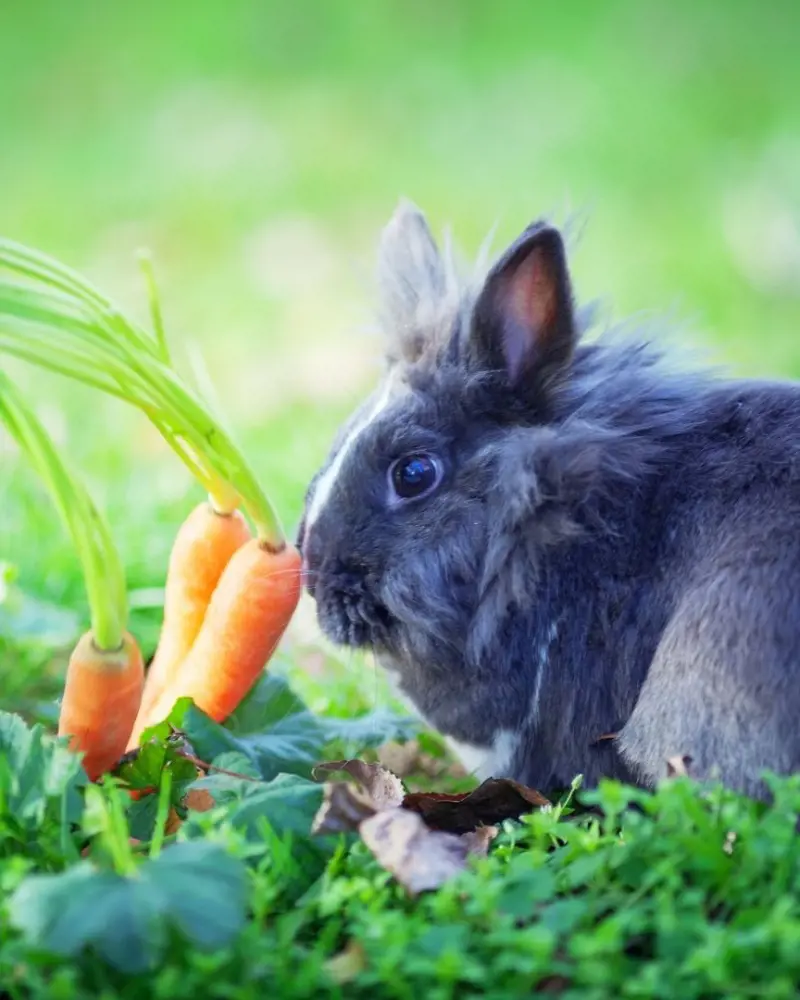
Rabbit lovers, who grew up watching the funny Bugs Bunny cartoon, can immediately associate rabbits with carrots. But, although the cartoon shows carrots as the primary food of bunnies, it couldn’t be farther from the truth.
Offer fresh, raw carrots in small pieces as an occasional treat, no more than a teaspoon daily for an average-sized rabbit. You can also offer carrot tops; these are tasty and healthy additions to your rabbit's vegetable mix.
7. Apples
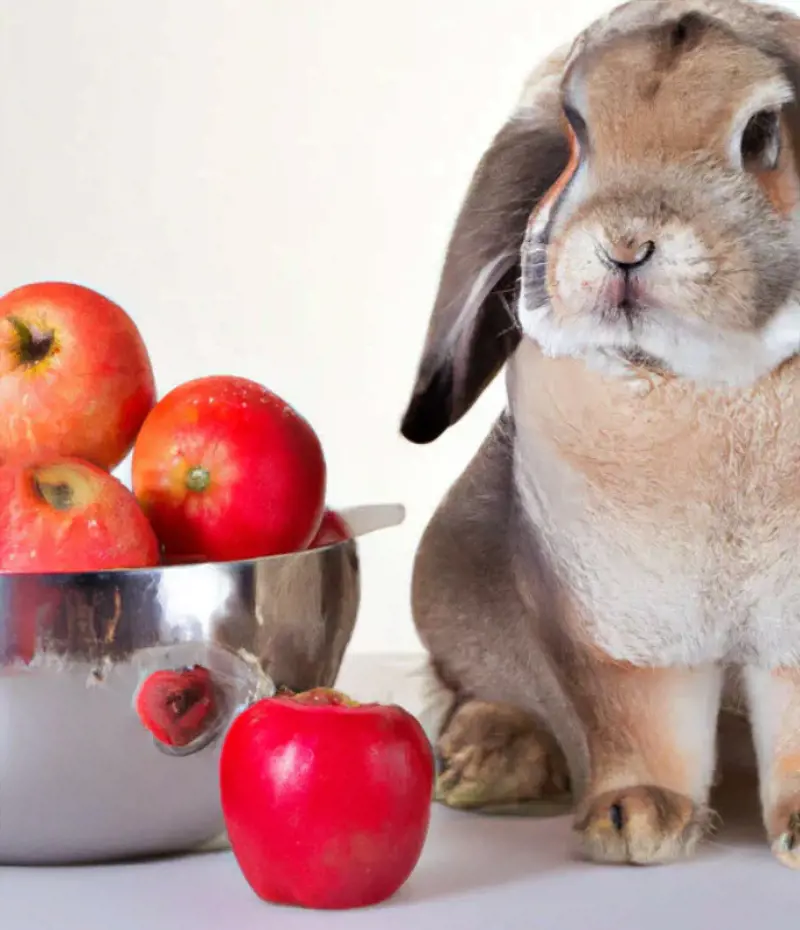
Feed one or two apple slices once a week, preferably as a form of positive reinforcement to reward good behavior in rabbits. The slices should be thoroughly cleaned and cut into small pieces to avoid choking.
But, only give the apple after removing the seeds and core as they might contain cyanide compounds toxic to rabbits.
8. Strawberries
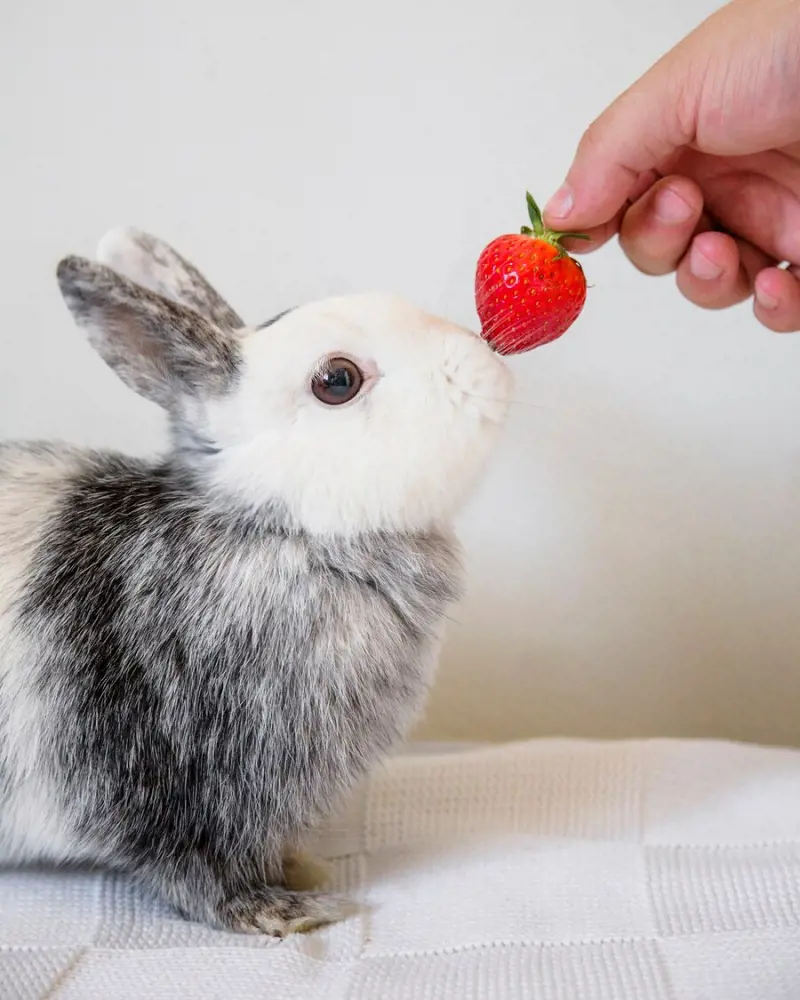
In contrast to popular beliefs, strawberries are indeed harmless to rabbits when given in a limited amount. The high sugar content will not be an issue as long as you’re only feeding them one piece of medium-sized strawberry per week.
Discontinue immediately if the rabbit shows any symptoms of strawberry allergy or gastrointestinal displeasure.
9. Dandelion Greens
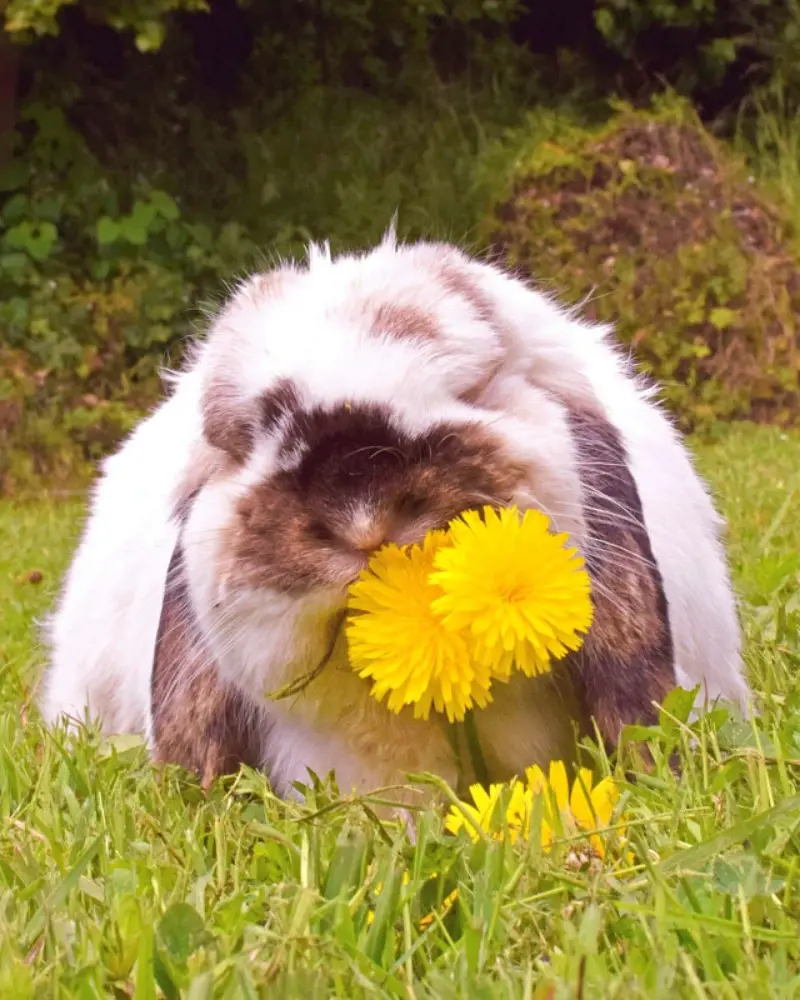
For feeding your rabbit, pick only the freshest and pesticide-free dandelion greens. Give a small handful of these foods as part of a day's serving of vegetables to your rabbit.
10. Celery
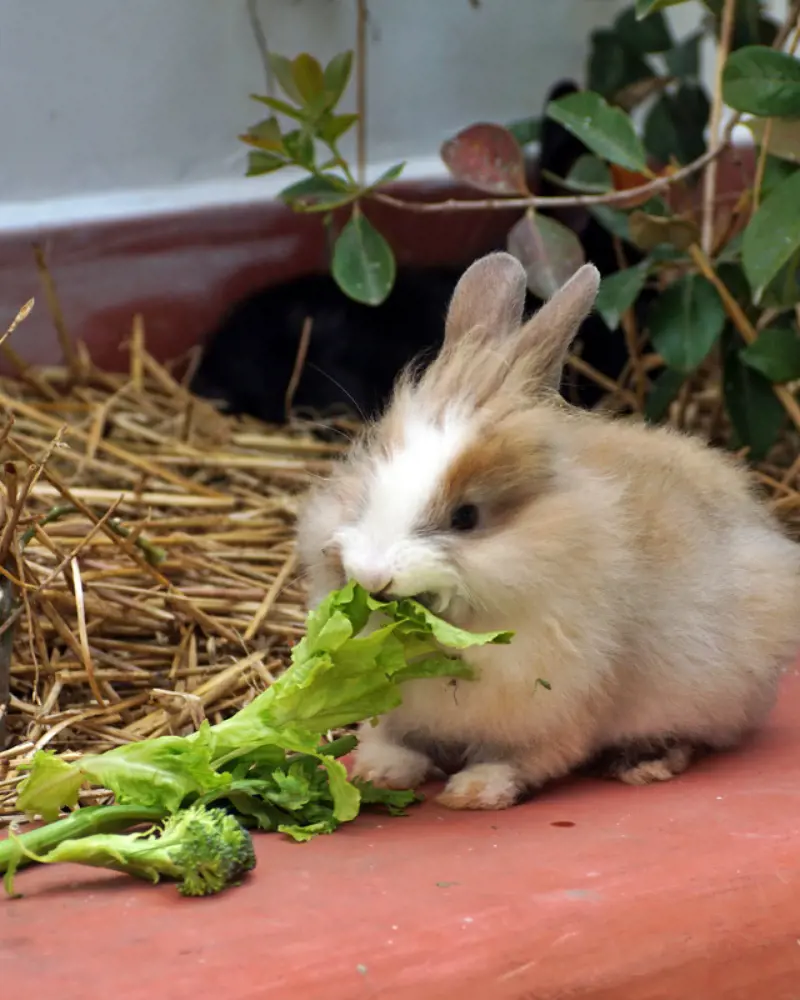
Raw celery is a crunchy and refreshing treat for rabbits- just don’t feed this daily. Highly watery and stringy in texture, celery should be given only after all the strings are removed.
Though a healthy food, celery can cause diarrhea and stomach upset if eaten excessively. If you notice any such symptom, immediately discontinue feeding celery.
11. Bell Peppers
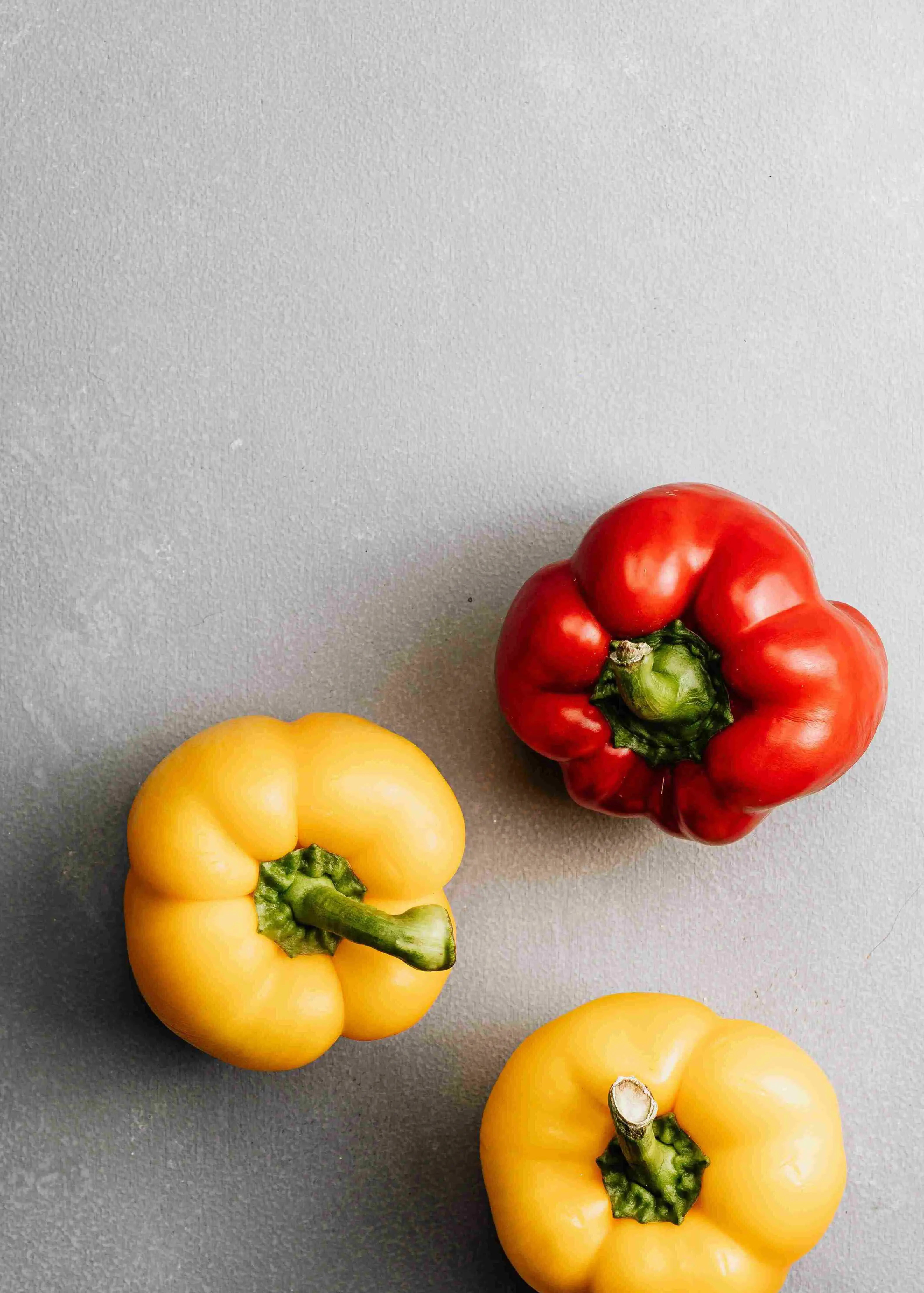
Colorful and nutritious, this non-spicy pepper adds an extra flavorful crunch to your rabbit's diet. These veggies contain more than their fair share of vitamin C- an extremely important factor in your rabbit's diet for its immune system and general health.
You may include differently colored peppers, like red, yellow, and green, for varying nutrients. Also, only offer small slices of washed bell peppers as an occasional snack, say a few times a week for variety.
12. Lettuce
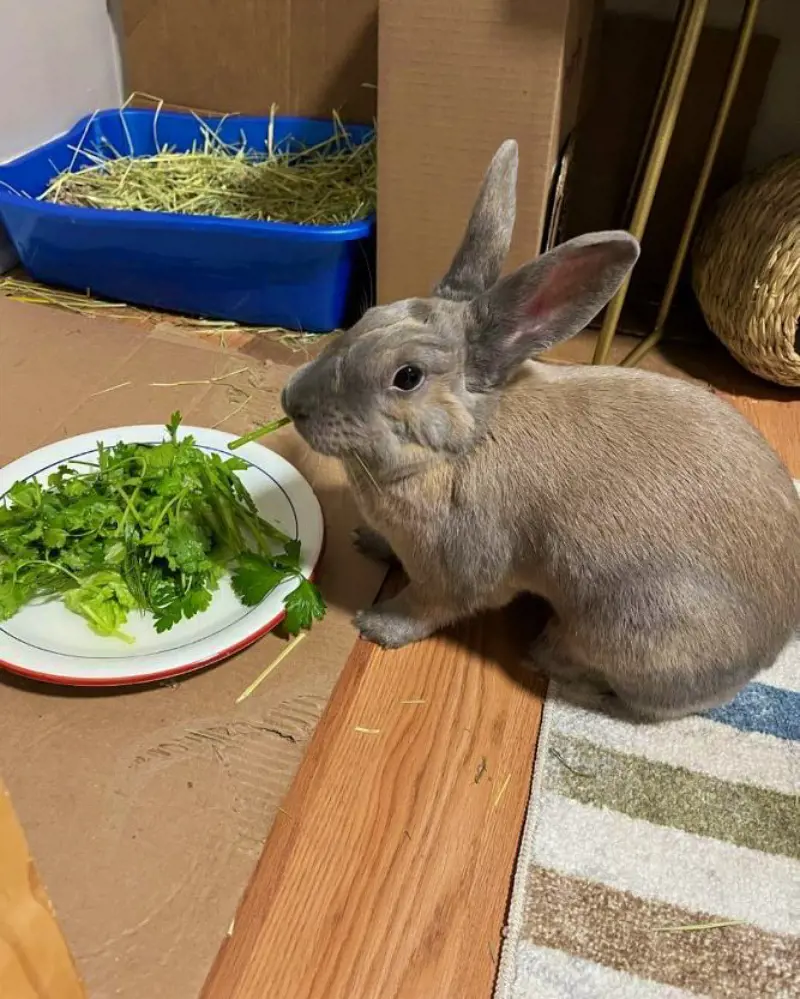
When in doubt about what bunnies eat, don’t look further than your kitchen garden for the answer. Darker and leafy lettuce varieties will be a delicacy to your rabbit's diet in hydrating ways.
Though iceberg lettuce is a common type, this human food for rabbits has significantly more water content than other varieties and does not hold any important nutritional value. So, try to purchase other varieties that don’t have the same effect on rabbits.
13. Sprouts
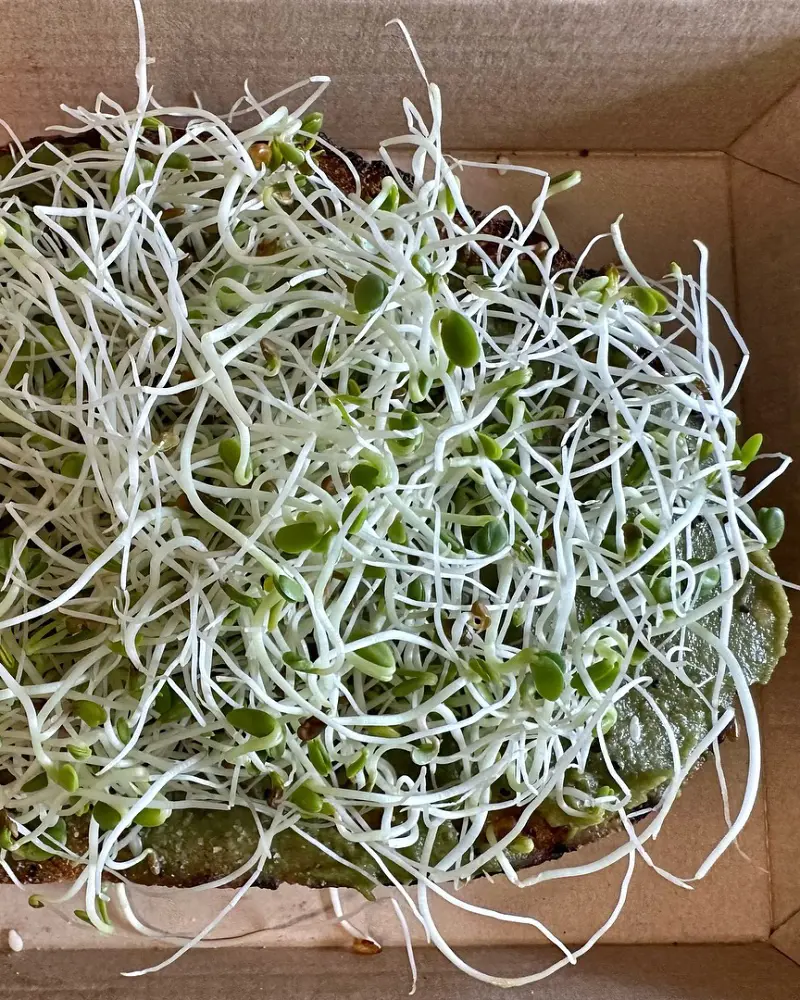
Rabbits crave the taste of alfalfa sprouts and broccoli sprouts as delicacies. Rich in young, tender shoots full of vitamins, minerals, and enzymes, these plants let the rabbit enjoy a burst of fresh nutrients.
Be careful, these sprouts must only be given as a supplement and not as an alternative for their primary food.
14. Flowers
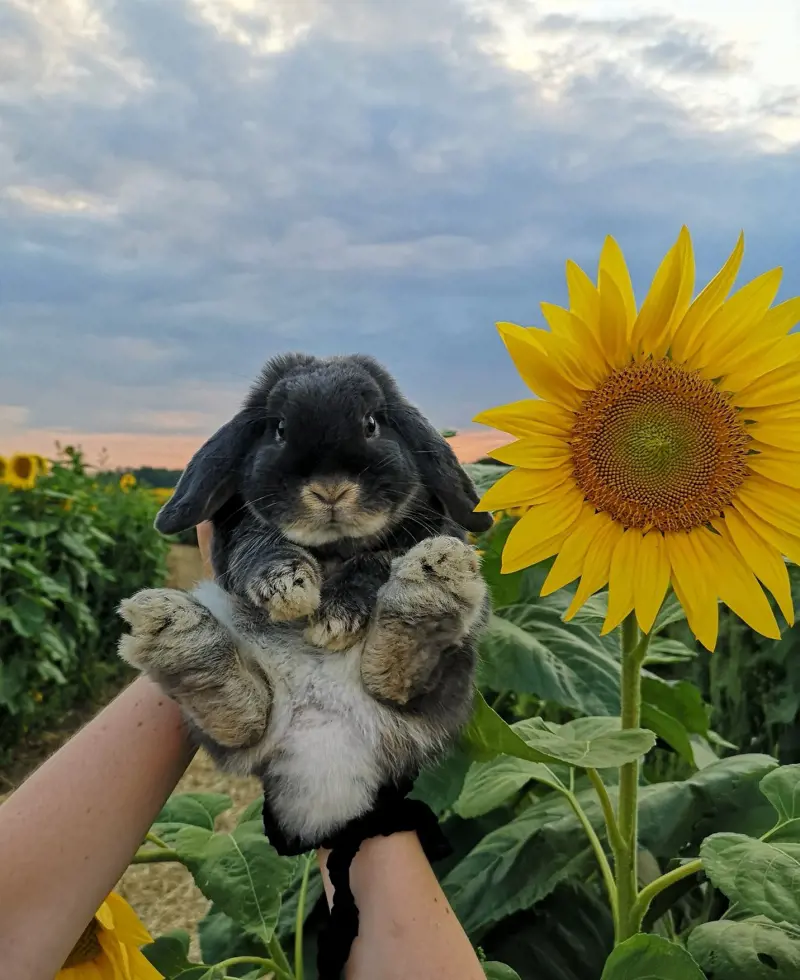
Flowers aren’t just for the pollinators; even rabbits love munching on edible flowers like dandelions, pansies, marigolds, and roses. Besides providing a safe lunch, these flowers also carry different types of vitamins and minerals.
First, make sure to only purchase flowers free from pesticides, herbicides, or other chemicals. Then offer small amounts as an occasional treat, preferably a few times a week.
15. Bunny Treats
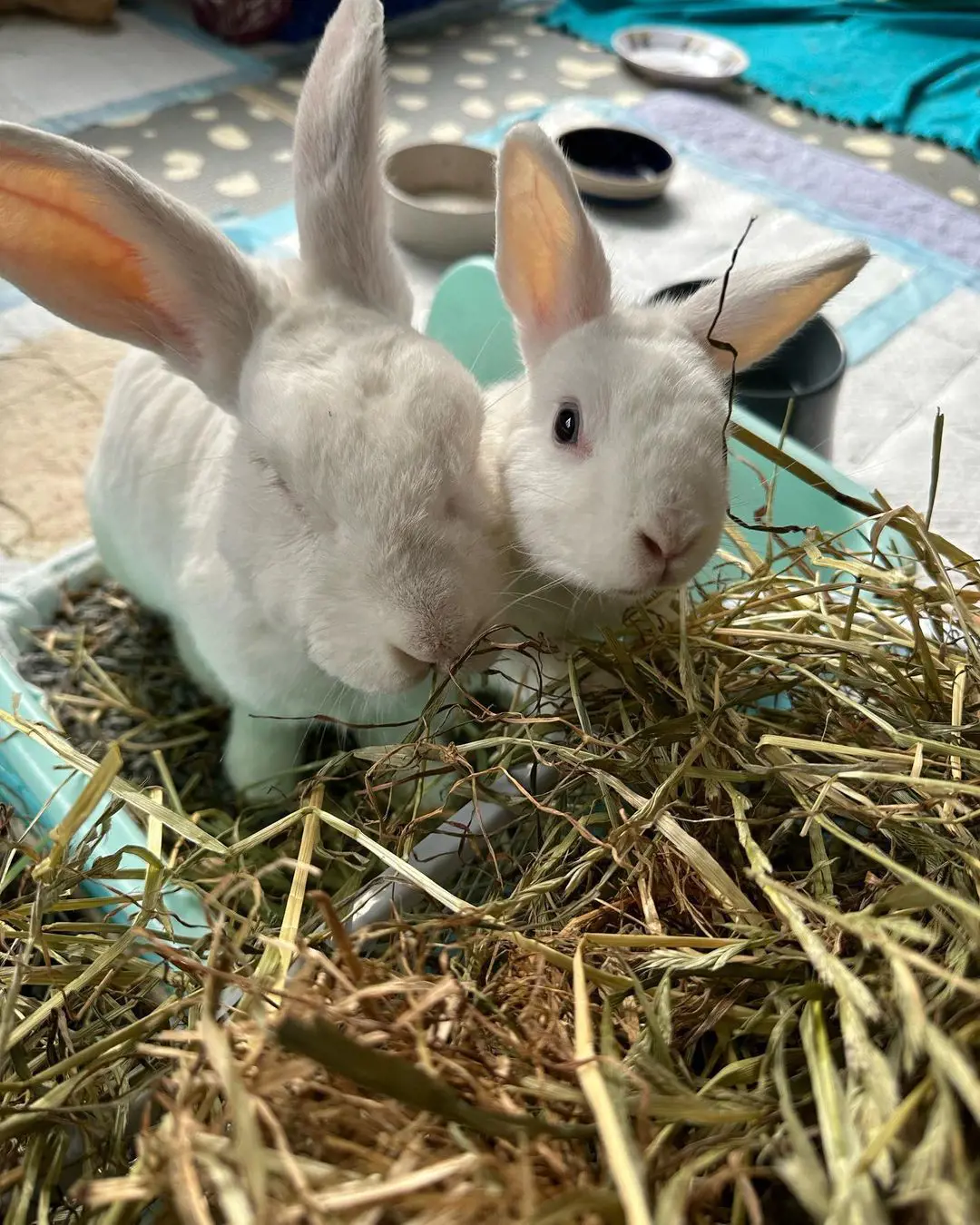
Purchasing an expensive bunny treat might not be in your budget. Worry not, you can use locally available resources to prepare a delicious snack to your best friend.
Options like dried fruits and yogurt drops are healthy and economical treats you can make at home with little work. When purchasing a commercial treat, read the ingredients and go for treats that are all hay-based and devoid of artificial additives.
Top Lists



